General Recommendations
The patient should remain fasting 4 hours prior to the test, avoid food and drink in case there is a need for administration of contrast agent. People who regularly take medications should follow their routine on the day of the test. For MRI of the head, it is important that you do not wear any makeup or hairspray, as many of these products have tiny metal particles that could interfere with the scan and make the examination impossible.
If you have a metallic or electronic foreign object implanted, such as pacemaker, cochlear implant, endoprosthesis or neurostimulator you must inform about the fact during registration for the scan.
If there is a need for administration of contrast agent, you are asked to drink at least 1.5 liters of liquid within 12 hours the day before examination; in this way the contrast agent will be easier eliminated from the body.
Due to the strong magnetic field in the MRI scanning room, please do not bring any metal objects that can damage the machine or cause injury to the patient.
Additionally, do not bring any cell phones, credit cards, watches or other electronic devices, as these items may be damaged.
MRI scan is a completely safe procedure, but due to the use of magnetic field, there are some contraindications for MRI scanning. These include:
- a heart pacemaker and cochlear implants, neurostimulators, insulin pumps,
- a metallic foreign body in the structures of the central nervous system and the eye.
- Some implanted elements (e.g. .: some artificial valves, orthopedic aids, stabilizers, vascular clips).
Please bring any documentation regarding the implanted elements. You can obtain such information at the hospital/unit where your surgery has been performed. If you suffer for claustrophobia you may be examined in open MR system or receive anesthetic premedication.
Pregnancy is not a contraindication for MRI scanning; however, it is necessary to inform a physician if you are pregnant. The study in the first trimester of pregnancy is not recommended and it is only performed in special cases.
Preparation
Please register for the scan 15 minutes before your appointment in order to fill in a medical form concerning chronic diseases, allergies, medications you are on and potential contraindications for MR scanning.
If possible, please print out the form and fill it in at home. You can download it here link. In some instances you might be given contrast agent (intravenously, seldom orally) in order to obtain clear picture of the test area. We use only safe contrast agents of the highest quality.
In case the contrast agent needs to be administered intravenously, right before the examination, a nurse will put a cannula in. We use only safe contrast agents and side effects are very rare. If the contrast agent is administered orally, you should register at least an hour before the scheduled test. A technician or a nurse will prepare a contrast agent solution in about 1.5 liter of water, which you will have to drink slowly and in small sips.
The scan/the test
During the test, a patient is monitored by a camera. The patient is also given a hand pump bulb, which enables to signal any sudden ailments. The test is painless. Rarely, there may be unpleasant sensations associated with administration of contrast agent. The patient is supervised by a technician, a doctor and a nurse, and commands are given by a microphone.
Most MRI scans last 15- 45 minutes, depending on the examined area and the necessary number of images, but in some cases the test may take up to 60 minutes or longer. It is important to remain still during the test; otherwise it is not possible to obtain diagnostic images. When MRI scanner is on, it emits sounds of varying intensity, which in individual cases may be perceived as unpleasant. In order to alleviate discomfort, apply protective headphones.
After the test/the scan
After the test, if the patient had been given a contrast agent, he or she is kindly asked to stay a few minutes in the laboratory. If there are no side effects, you can leave the facility grounds. The patient is asked to drink at least two liters of fluid per day for the next two days if the contrast agent has been administered, in order eliminate it from the body.
Documents for download
Download a questionnaire





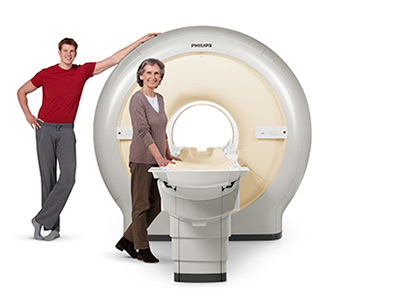
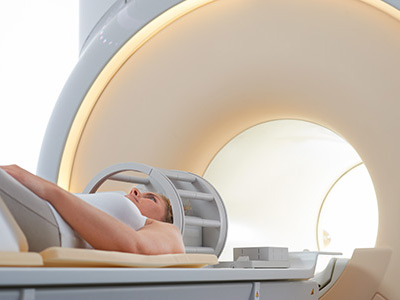
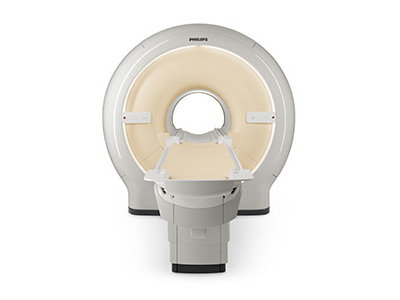
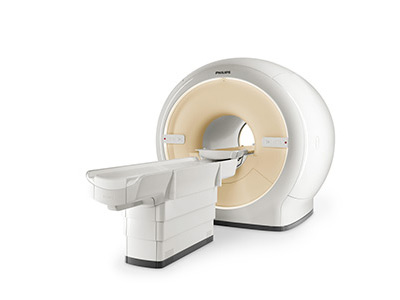
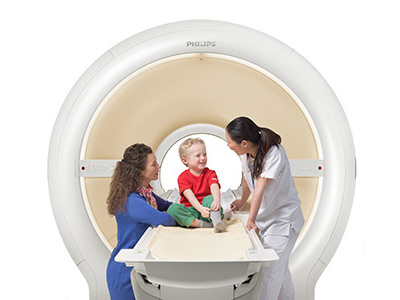
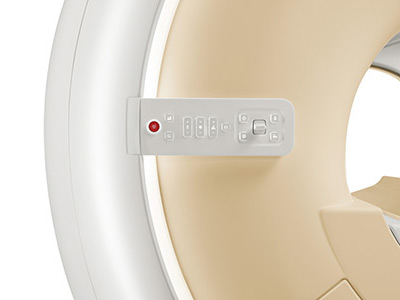
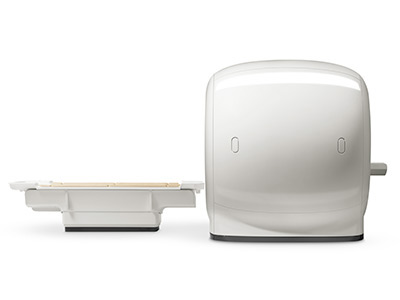
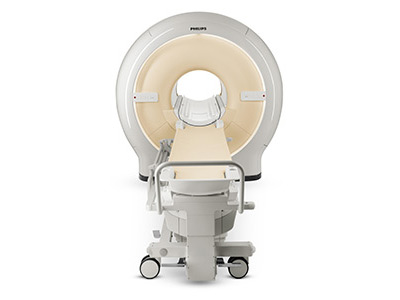

 MRI Information for patients
MRI Information for patients
